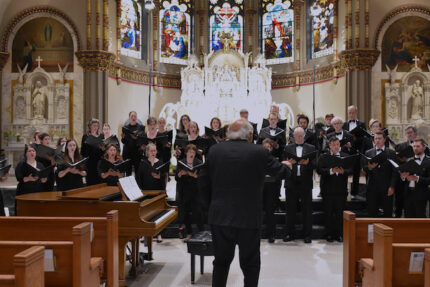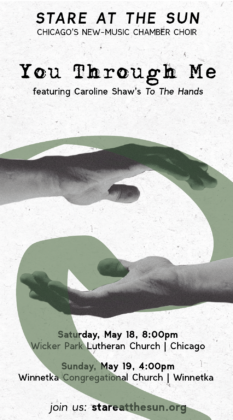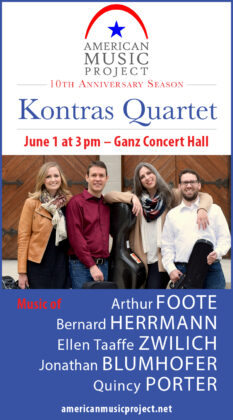Chicago Chorale adds jewel to crown of English choral gems

The Chicago Chorale provided a tidy survey of English choral gems Saturday night in a program titled “The Magic and the Dream: English Choral Music Then to Now.” The concert spanned the Elizabethan era to the present with a cappella works by William Byrd, Henry Purcell, Robert Pearsall, Charles Stanford, William Walton, Herbert Howells, and Kerensa Briggs.
As artistic director Bruce Tammen noted in his pre-concert remarks, choral singing runs deep in British culture (as evidenced by its prominence in events of national importance, such as the recent coronation). While the English model has influenced choral singing and composition worldwide, this concert marked the first time in the Chorale’s twenty-two-year history that it has explored this core English repertoire in depth. As such, Tammen gave the audience what he called a “survey course” of some of the most famous English choral music.
Beginning the program were two anthems by William Byrd, who died four hundred years ago this year. The Chorale brought crisp articulation to “Sing Joyfully,” a spritely anthem that was the most upbeat selection of the whole program.
Byrd’s famous “Ave verum corpus” motet followed, representing the composer’s output of private devotional music for use in Catholic homes during the English Reformation. Capturing the intimacy of the intended setting of the motet with over fifty singers is no mean feat, but Tammen eked out a pillowy-soft dynamic from the group. The bevy of singers also allowed for a luxurious tempo, which would not be sustainable with a smaller group. However, it veered on the edge of indulgent with the amount of added time between phrases.
Slow tempi were a recurring theme in this program, due in part to the reverberant acoustic of the spacious St. Vincent DePaul Parish. Henry Purcell’s “Remember Not, Lord, Our Offenses” was treated with somewhat of a romantic touch, while Charles Stanford’s “Beati quorum via” was also on the slow side, which drained the momentum needed to eke out the maximum drama from the climax of the piece. Tempo preferences aside, both pieces were sensitively sung with the Chorale’s characteristic lush tone and seamless blend.
Robert Pearsall’s secular madrigal “Lay a Garland” was the perfect avenue for long-unfurling phrases, while William Walton’s “Set Me as a Seal” provided textural contrast with a lovely call-and-response-like solo from baritone Brandon Sanders.

The programming of “Media vita” by contemporary composer Kerensa Briggs was a clever way to demonstrate the strength of English choral music in the 21st century while highlighting its roots in traditions of the past. The piece began in a similar harmonic sound-world as the Walton but also featured layered suspensions as in the Pearsall. The harmonies became more daring near the end, though the chords were sometimes hard to distinguish in the echoey acoustic.
The second half of the program, which proceeded without intermission, featured Herbert Howells’ moving Requiem, a work the Chorale has performed twice in the past. The Chorale executed the difficult piece with aplomb, negotiating Howells’ tricky rhythms and unique harmonic language skillfully. The most secure movements were “Salvator mundi” and “Psalm 121,” as they retained a sense of forward momentum throughout.
The Requiem afforded a few step-out solo moments. Tenor Michael Byrley was especially rock-solid in his chromatically inflected solos, and soprano Sarah Kozak soared over the texture of the final movement, “I heard a voice from heaven.” Kudos should also be given to Tambra Black, who stepped in at the last minute for an ailing alto soloist in the difficult trio of the second movement.
More contrasting selections could have been offered to break up the lush textures. Also, at times the sopranos were overpowered by the lower voices, especially when split into two parts. Positioning them in the middle of the choir instead of on the side may facilitate better balance and give the sopranos extra support to “give it some wellie,” as the British are wont to say.
Yet overall the Chicago Chorale was a successful champion in this sampler of the wealth of English choral music.
The program will be repeated 3 p.m. Sunday at Hyde Park Union Church. chicagochorale.org
Posted in Uncategorized




